- Home
- Rosanne Hawke
The Truth About Peacock Blue Page 2
The Truth About Peacock Blue Read online
Page 2
Abba glanced at us in the rear-vision mirror, amused.
Sammy sat with his bag on his lap and gave me an approving grin. ‘Nice uniform.’
It was my turn to elbow him. But he was right, I had dressed carefully in the Government Girls High School uniform: white shalwar and blue qameez, a white serviceable cotton dupatta, scarf and black shoes. Abba had made the shalwar qameez for me and I’d sewn the hems. My hair was in a neat black plait tied with a blue ribbon. Only girls fairer than me were called beautiful but my nose and mouth could have been considered pretty, if my eyes weren’t so huge and dark. My glasses made them even more pronounced.
At least I had glasses, as Abba often pointed out. He took me to the eye doctor at Taxila after I had cooked the rice one night. As he ate Ijaz had screwed up his nose. ‘The cumin hasn’t made the rice taste better.’
I’d cried, ‘But I haven’t added cumin,’ and inspected a spoonful. ‘Hoi, it’s mice dirt!’
Ijaz spat out his mouthful, spraying my plate as well. It took years for the teasing to cease.
‘So, my beti is going to high school.’ My father shouted it above the noise of the motor. He was proud of me and I grinned at his reflection in the mirror.
I watched the fields fly by, the buffaloes ambling, farm workers walking to the fields with their scythes over their shoulders. It was spring and hay was being cut. A flock of goats barricaded the road and Abba changed gears to inch past so as not to frighten them.
‘You mustn’t be late on the first day,’ Abba shouted into the rear-vision mirror.
I grinned at Sammy. I was more excited than I showed, but hesitant too. Abba thought school was just about arithmetic, writing and exams but I suspected it wouldn’t be easy changing from the village school to the big high school.
‘Do your best and Khuda will do the rest’ was one of his stock statements. But I knew there would be forty girls or more in my class who I didn’t know and who wouldn’t know me.
He dropped Sammy at the boys’ high school first and when we arrived at the girls’ school, Abba took me straight to the principal’s office.
‘Welcome to our school.’ Mrs Iqbal smiled at me. ‘You will learn well and make many pleasant memories here.’
Then Abba voiced our concern. ‘We are a Masihi family—’
Mrs Iqbal cut in, ‘She will be expected to take all the same subjects as the other girls, but she will be free to follow her Christian faith.’
Abba relaxed. ‘Accha, good.’ Then he stood. ‘I will leave her with you. Each day I will collect her at the gate.’
Mrs Iqbal inclined her head. ‘A good arrangement.’
I didn’t look at him as he left for fear I would lose my nerve. As if she knew Mrs Iqbal said briskly, ‘I will take you to your class now. It is one of our best.’
When we walked in the girls stood. They had been quietly working in exercise books. There were so many of them, they seemed like a forest.
‘Year Eights, this is a new classmate, Aster Suleiman Masih.’
By telling them my full name Mrs Iqbal had told them I was different from them: Masih means Christ.
The teacher showed me a seat by a girl whose ruler bore the name Rabia. And so the day began. At recess Rabia faithfully took me down a long verandah and showed me where the latrine was at the end of the building and where to buy snacks. Then she took me to a covered area between two buildings where girls were eating and laughing.
‘Have you lived in the town long?’ I asked.
‘All my life.’ She regarded me as if gauging what to say next. ‘Why didn’t you attend the Government Primary School?’
How to answer that? ‘I live in a village and I attended the school there. But my parents decided to send me to high school here since we don’t have one.’
She nodded. I supposed that all these girls came from families with enough money to educate the girls as well as the boys. I wouldn’t even be here if Ijaz were still alive.
We were returning to our room when two girls from the class stood in our path.
‘Do your parents sweep the streets and gutters like most Christians?’ one said.
I flinched at the scorn in her tone. Rabia told me her name later: Saleema. I had no answer, for my Dalit great-grandfather, Shahbaz, had indeed been a sweeper of the streets, before an Englishman told him he didn’t have to wait centuries to work his way to heaven.
‘And their latrines?’ another sneered. ‘Watch yourself, Rabia.’ She barely suppressed a snort. ‘You don’t want to catch a disease.’
‘Ji, yes,’ Saleema didn’t hide her giggle, ‘you might grow ugly overnight.’
Rabia shifted her feet uncomfortably and the girls moved on. I didn’t know what to say and neither did she. I hoped it wouldn’t stop her talking to me. No one else had even said ‘salaam’.
The worst lesson of the day was Islamiyat. The teacher, Mrs Abdul, saw my name on the roll and narrowed her gaze at me. She didn’t welcome me to the class, but recited a verse from the Qur’an and asked me to repeat it. It was unfamiliar to me.
‘Allah . . .’ I began, then faltered.
‘Not listening, Aster?’
A few of the girls sniggered but Rabia stared at the desk. The lesson didn’t get any better from there.
When Abba picked me up, he asked, ‘And how did your day go?’
By his tone he was expecting me to chat excitedly about how grateful I was for this wonderful opportunity. ‘Don’t ask,’ was all I said.
He looked at my face in the rear-vision mirror. ‘Beti, you will need to prove your love. The girls will like you when they see how genuine you are.’
I blew out a slow breath as we stopped at the boys’ high school to pick up Sammy. The girls may not be the biggest problem. I had a feeling that Mrs Abdul would never warm to me.
CHAPTER
4
Abba’s favourite motto was ‘Do not fear’. He would say, ‘We must love at all times, beti. There is no fear in love.’ It was difficult at times to live up to Abba’s expectations. ‘Not mine,’ he’d say. ‘Khuda’s.’
How not to fear? Didn’t we all feel fear when Hadassah was attacked, that it could happen again? When Shahbaz Bhatti, the minister for minorities, was killed for supporting those accused of blasphemy, weren’t we afraid our village would be attacked next by Muslim extremists? When Salman Taseer, the governor of Punjab, was assassinated for attempting to reform the blasphemy law, Abba prayed constantly for our family, that repercussions wouldn’t fall on minority groups like us.
I didn’t tell my parents I was afraid to return to school and I didn’t have Hadassah to confide in, nor could I write to her. No one would tell me where she was.
I told Sammy instead. ‘Most of the subjects are fine, but Arabic and Islamiyat are difficult. And the teacher is aggressive. The girls look down their noses at me.’ I thought of Rabia. ‘Most of them . . .’ I grimaced.
‘Maybe you’ll get used to it, maybe not. But think of the education you are getting. You’ll be the most intelligent of us all.’ He laughed.
Why did I bother to confide in him? For sympathy? I thought of Saleema. How could I describe her vindictiveness?
Sammy saw my hesitation and his tone changed. ‘Aster, it won’t be easy at first. The kids are fed such lies about us, that we worship three gods and swap wives like Americans. But once you make a friend, it will get easier.’
I gazed at him, desolate. I couldn’t imagine it.
‘My dost Ahmed? We became friends over a game of soccer. Then cricket. Now all the boys like me.’
I despaired. I would have loved to play cricket or soccer but there were no girls’ sports at the school. Sports would encourage girls like Saleema to be fair-minded.
It was as if Sammy could follow my thoughts. Maybe he had been through more than he let on, for he said, ‘Don’t let a few people ruin your day. There will be many others who are willing to be kind once they see you are human.’
He leaned closer. ‘You a
re a caring, sensitive girl, even though you’re noisy and as blind as a bat.’
I dug him in the ribs.
‘You’ll get a friend soon, but don’t wait for it to happen – make a friend.’ He pulled a stupid face and in no time had me laughing. Sammy was good for that. If we hadn’t grown up together I wondered if he would have been chosen for me. We got on so well.
Then I thought of Barakat. At Ijaz’s funeral he was weeping and kept glancing at me. He was even good-looking like Ijaz; it would be no hardship to be married to him. I berated myself. His parents would be thinking of someone fairer than me. Someone with better eyesight who could see if the mice had broken into the rice bag.
School on Monday didn’t improve. Rabia said ‘salaam’ but that was all. I sat at my desk dreading what would come.
The maths teacher entered. Miss Rehmat was young. She was also different from Mrs Abdul. She wore a dupatta but I hadn’t seen her in a burqa like Mrs Abdul. She put a maths problem on the board. ‘Please copy this into your exercise books.’
She walked around the class as we each solved it. I was surprised: usually teachers remained at the front. If they wanted to check our work they asked students to bring it. The problem wasn’t difficult, yet she paused slightly behind my chair before walking back to the front.
She spun to face us. ‘Aster.’
A feeling of horror spread upward from my belly.
‘Would you care to solve the problem on the board for us all to see?’
I hesitated. What if she showed everyone that this was how not to do it? That would give Saleema more fuel to burn me.
‘Just as you did in your notebook.’ Miss Rehmat held out the chalk.
Rabia tipped her chin at the board and grinned. I walked slowly to the front, planning my first move. When I reached the board, I didn’t have to think, I just copied in a few strokes what I had in my exercise book.
‘This is the best way to do this type of problem,’ Miss Rehmat said to the class.
There was a silence so heavy my legs almost gave way. She turned to me. ‘Where did you learn your maths?’
‘In my village school—’ I began.
There were sniggers but Miss Rehmat glanced up and they stopped. I could have added how Ijaz gave me extra problems from his textbook when I had finished my own. I returned to my desk but caught Saleema’s baleful gaze on me. With my heart sinking I realised Miss Rehmat’s actions hadn’t helped me any.
The English teacher was efficient, yet she put aside time to read to us. Abba had encouraged Ijaz to read in English and so I did also. Even some of our church songs were in English.
Miss Saed-Ulla read from To Kill a Mockingbird. ‘Yes, this is an American book, but it did more to change attitudes about race than any other work of art in the twentieth century,’ she said. ‘We must let art be free to cross cultural and racial borders, especially those of distrust and intolerance.’
I stared at her with interest. Abba had said a similar thing about our faith: ‘Being Masihi has nothing to with other countries but everything to do with our own relationship with Khuda.’
I began to look forward to English lessons. It was only Mrs Abdul’s classes I dreaded and she had two periods every day: Arabic and Islamiyat. However hard I tried, my efforts in class never pleased her. She always reprimanded me. It was as if she knew I would get it wrong.
That Monday was the start of how she would always treat me. She called me to the front to check my homework book.
‘You didn’t do your work correctly, you stupid girl.’ She glared at me. ‘This is not good enough!’ She threw the book at me; it hit the side of my head and my glasses fell to the floor. I scrambled for them.
When I stood, I said, ‘Ji, miss, I did my best,’ careful to be respectful.
I wanted to explain that I didn’t grow up with Arabic, had never heard my father read the Qur’an aloud like other girls in the class. I was told different stories in Punjabi. Even my Injeel, my New Testament, was printed in Urdu.
‘Your best is not enough, lazy girl. If you did your homework properly you would understand the lesson today.’
A few of the girls smirked as I returned to my desk, blinking too much. When I glanced up I noticed Rabia watching me with pity in her eyes.
It wasn’t fair. I looked like them, only with slightly darker skin from my Dalit great-grandfather. I also wore a scarf like them. But they knew I was different in a way that went much deeper than my skin colour. I even had a name no other Muslim girl in the class had. Imagine if they knew I was named after a Jewish queen.
At lunchtime, Rabia sought me out in the covered area. I was eating leftover curry and rice from my three tiered-lunch tin. ‘I’m sorry about what happened in class. Mrs Abdul will always be upset with you because you are the only Masihi and you haven’t said the Kalimah.’
I swallowed my mouthful in a rush. ‘The principal assured my father I wouldn’t have to convert to attend school.’
Ijaz had told me Yesu Masih, Jesus Christ, is in the Qur’an, but Mrs Abdul never mentioned Him. She didn’t try to find common ground for me like Ijaz’s teacher had for him.
‘I wish I didn’t have to do Islamiyat – it’s mostly Arabic and I will never manage the answers that Mrs Abdul wants.’
Rabia sat beside me. ‘Why don’t you say the first Kalimah for her? All you have to do is state: “There is no god but God and Muhammad is the messenger of God”. Say it in Arabic and it won’t mean a thing. Then she will stop bothering you. You’ll be her special project.’
My breaths came short and fast.
‘I couldn’t. Certainly, I believe there is only one God, but I can’t say that about Muhammad. Yesu Masih is the last Prophet. He’s the son of—’
‘Chup! Quiet!’ Rabia cut me off and checked behind us. ‘Don’t say that here. It will be misunderstood and you could be accused of blasphemy!’
‘But I’m only saying what I believe. I’m not meaning to blaspheme.’
‘All the same, be more careful.’
I decided the kindness in her eyes was genuine. ‘Why do you care?’
Rabia opened her mouth. She formed two words, ‘My father . . .’ and then stopped, as if in horror that she had spoken at all.
The bell rang and as we returned to class I wondered what she almost said.
CHAPTER
5
Sunday night was our village church service. We had one on Friday night too but on Sunday evenings the children and youth led the service. This was when I missed Ijaz the most. He had been a good speaker like Abba, despite his coughing fits, and his prayers had made me think I could see into heaven. All I’d have to do was put my arm up to touch the sky and I’d reach it as if the space between heaven and earth was thinner there. It was easier to believe when Ijaz was alive.
That Sunday, we had a guest speaker. He was a young doctor, recently graduated. He brought his keyboard and Sammy played the tabla for him.
I’d never heard a voice as rich as Dr Amal’s. He sang a song he had written called ‘Umeed’. It was about hope and I felt my spirit lift slightly.
‘Life may be hard for us,’ he said in his talk afterwards, ‘but Khuda will always give us strength to be victorious. Always live according to his will and be faithful in whatever situation we find ourselves.’
I was still grumpy – I bet he hadn’t met Mrs Abdul – but the grumpiness was lessening. When I stood up to lead the singing again with Sammy, Dr Amal joined in. Afterwards we had chai served from a hotpot and he spoke to me.
‘You are Ijaz’s sister?’
I nodded, nonplussed and inexplicably shy.
‘He was my friend on Facebook. I was very sorry about his passing.’
I realised then he would have been at the funeral; I’d hardly noticed anything that day. I inclined my head and murmured, ‘Shukriya, thank you.’
‘You and your friends can follow me on Facebook too. I post video clips of my songs, so you can learn new ones.’
I brightened. That would be fun and I could teach them to the fellowship on Sunday nights.
‘Shukriya. That is very kind.’
‘I have a heart for these little Christian villages,’ he said, ‘striving to survive without being engulfed by Islam.’
That night I went on Facebook for the first time since Ijaz died. It had been six months. We had a computer in our house and our neighbours often came to use it. At times, our house was like an internet café, especially at Christmas. When Ammi was working at the Rafiques’ house, I made the chai for any uncles and aunts who wanted to send emails. I didn’t bother for the cousins.
‘No games,’ Abba said. ‘The computer is only for designated homework and important emails.’
Less people used our computer once Uncle Ibrahim bought one when Sammy began high school.
I didn’t have a Facebook profile as Ijaz had let me send messages on his to Hadassah and Maryam. Ijaz’s wall had been silent for so long that I decided to take over his profile. Maybe I should have started my own, but I would have quick access to his friends’ list, plus the doctor, and in a warm way it made me feel Ijaz was still here.
Was that so bad? Just as my finger hovered to click I thought about it some more. Ijaz would have had male ‘friends’ and they would see everything I wrote, plus they would know it wasn’t Ijaz. I needed a new profile image.
My favourite bird was the peacock. I painted and drew them, even embroidered them with the material held up close to my glasses. I scanned in a painting I’d done in a sketchbook, then inserted it in Ijaz’s profile. I unticked Ijaz’s personal information and typed in ‘A Peacock Admirer’. The peacock materialised with its vibrant blue feathers and hundreds of green eyes. I used the head and blue chest as the profile image and the green-eyed tail spread like a fan for the cover image.
What could I call myself? Not my real name in case Abba wasn’t pleased. Blue was my favourite colour so I typed in Peacock Blue instead of Ijaz’s name. Then I sent a message to Sammy.
MESSAGES

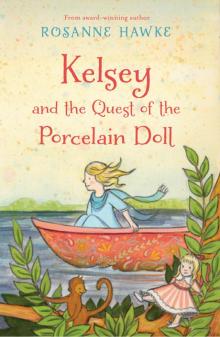 Kelsey and the Quest of the Porcelain Doll
Kelsey and the Quest of the Porcelain Doll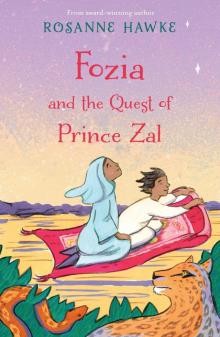 Fozia and the Quest of Prince Zal
Fozia and the Quest of Prince Zal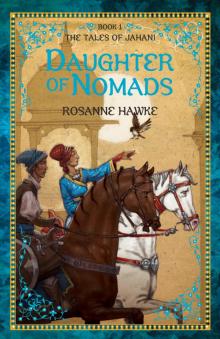 Daughter of Nomads
Daughter of Nomads The Truth About Peacock Blue
The Truth About Peacock Blue Taj and the Great Camel Trek
Taj and the Great Camel Trek The War Within
The War Within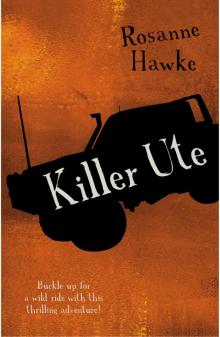 Killer Ute
Killer Ute Shahana
Shahana Kerenza: A New Australian
Kerenza: A New Australian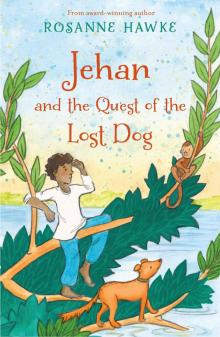 Jehan and the Quest of the Lost Dog
Jehan and the Quest of the Lost Dog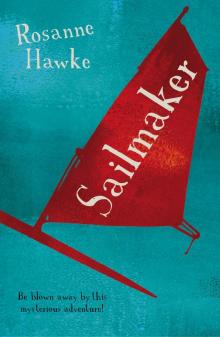 Sailmaker
Sailmaker Zenna Dare
Zenna Dare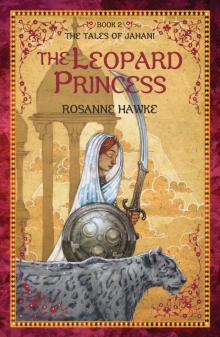 The Leopard Princess
The Leopard Princess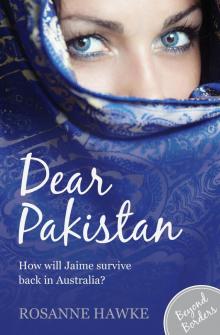 Dear Pakistan
Dear Pakistan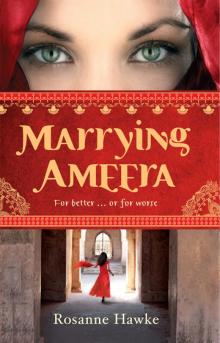 Marrying Ameera
Marrying Ameera Finding Kerra
Finding Kerra Spirit of a Mountain Wolf
Spirit of a Mountain Wolf